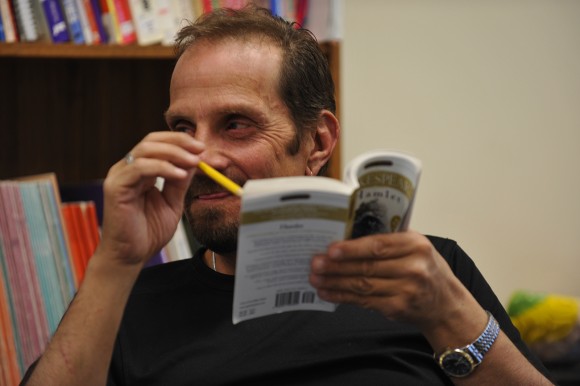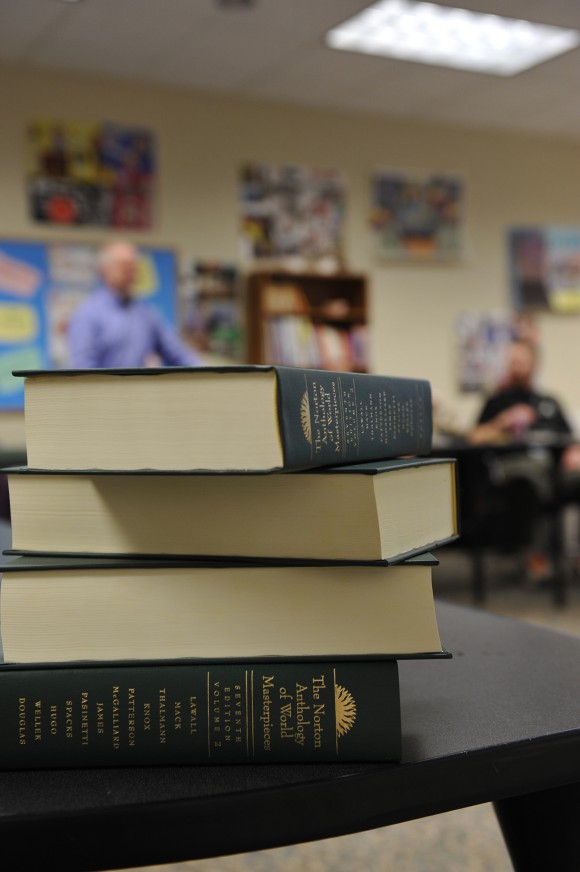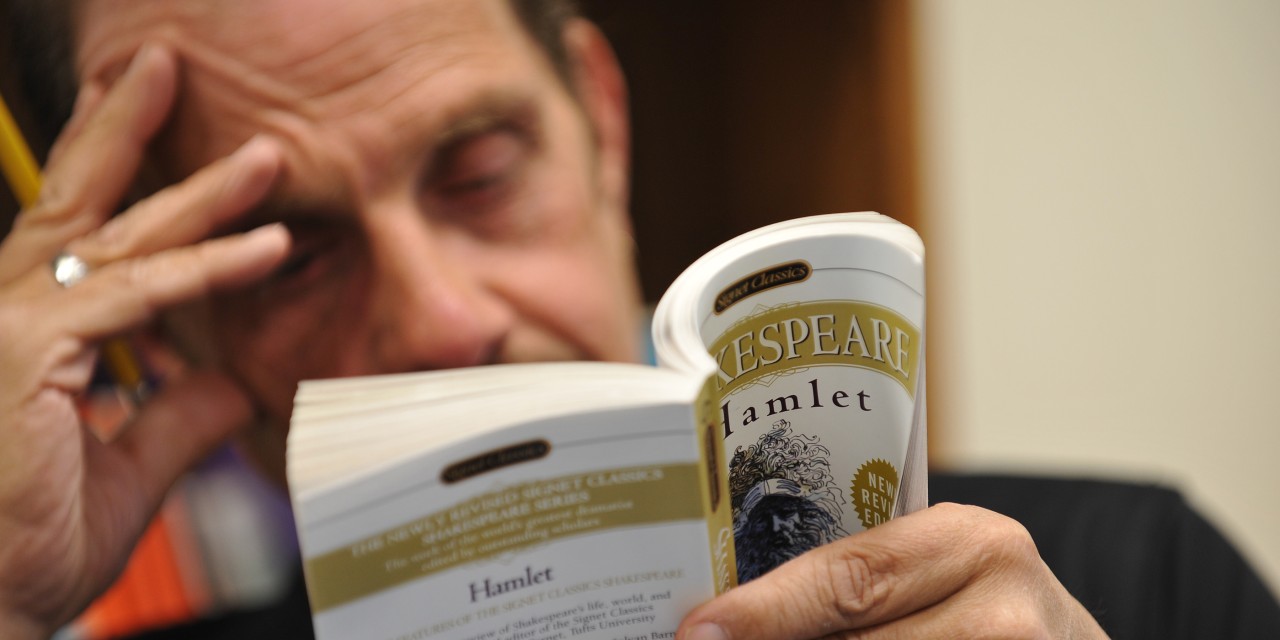Since 1998, University of Notre Dame faculty have led the World Masterpieces Seminar at the South Bend Center for the Homeless. Inspired by the Clemente Courses in the Humanities, which offer college-level humanities courses to people in economic distress around the country, Notre Dame’s program offers a version of the undergraduate Great Books seminars offered in the Program of Liberal Studies. It focuses on the reading and discussion of great works of literature, creating learning opportunities for residents to earn Notre Dame credit and to build community, self-confidence, and all the critical life skills that learning in the humanities endows.

Enrollment is open to all the Center’s homeless residents. To enable parents to participate, Notre Dame undergraduates provide free on-site childcare.
Classes are built around readings drawn from the on-campus Great Books curriculum, including Sophocles' Antigone and selections from the Odyssey, Paradise Lost, and Dialogues of Plato. They are operated as interactive undergraduate seminars, a format which helps build enthusiasm among participants.
“We require students to do the reading and to be active participants in class discussion, which is the way we run Great Books seminars on campus,” co-founder Stephen Fallon explains. “The leaders see themselves not as lecturers or those who give the meaning of texts under discussion, but as those who read the text more carefully and more often and those who are more experienced as readers.”
The project is driven by the conviction that the humanities effect positive change.
“We have a strong belief that humanities are important politically speaking. Not in terms of right or left, but in terms of enfranchising people to join the public conversation,” Fallon notes. “We believe that students who are empowered by reading classic texts will gain more of a voice and confidence to address issues in the public. We have found that students report growing in self-confidence and in the sense of belonging to a larger intellectual community.”

Students come from a range of educational backgrounds: some have earned college degrees, others have taken some college courses; some have diplomas or GEDs, and some possess 12th-grade reading skills but do not yet have GEDs. With this group, Fallon reports considerable progress.
“Often we have students who have no experience reading classic texts at all,” Fallon says. “Again and again, we have had the experience of students both surprised and delighted and growing in self-confidence because they can read these texts with comprehension and can talk about them with interested peers and professors.”
“Notre Dame is highly selective,” Fallon continues. “We're used to having very, very smart students, our undergraduates especially. We have found that we have had students at the Homeless Center who are every bit as up to the challenge of reading and discussing intelligently highly complex texts.”
As in on-campus seminars, participation involves both discussing the text as an object of study and connecting the texts to lived experience.
“The Homeless Center classes have life experiences which are entirely unlike the life experiences of our undergrads,” Fallon explains. “The students who we have at the Homeless Center have all sort of washed up on the shore after a tempestuous period. That has been particularly interesting for texts like the Odyssey…There is a strong sense of homelessness and searching in the Odyssey… Their experiences are in some ways more easily connectable to the texts than the experiences our traditional undergraduates have had.”
Fallon believes that engagement with marginalized and low-income communities is important for all universities, especially wealthy private Catholic universities like Notre Dame. “We have a strong undergraduate sense of service here, which is tied here to Catholic social teaching and the preferential option for the poor,” Fallon notes. He understands his teaching at the Homeless Center as an expression of these commitments. “Another reason is that teaching a variety of students is invigorating and instructive for faculty,” Fallon adds. “Going to the Center and teaching is a way of recharging our batteries; reminding us of our passion for teaching; thinking about the kinds of strategies we need to work with students in the Homeless Center and on campus. It's a way of not only serving the outside but keeping the interior life of the university alive and fresh and passionate.”
